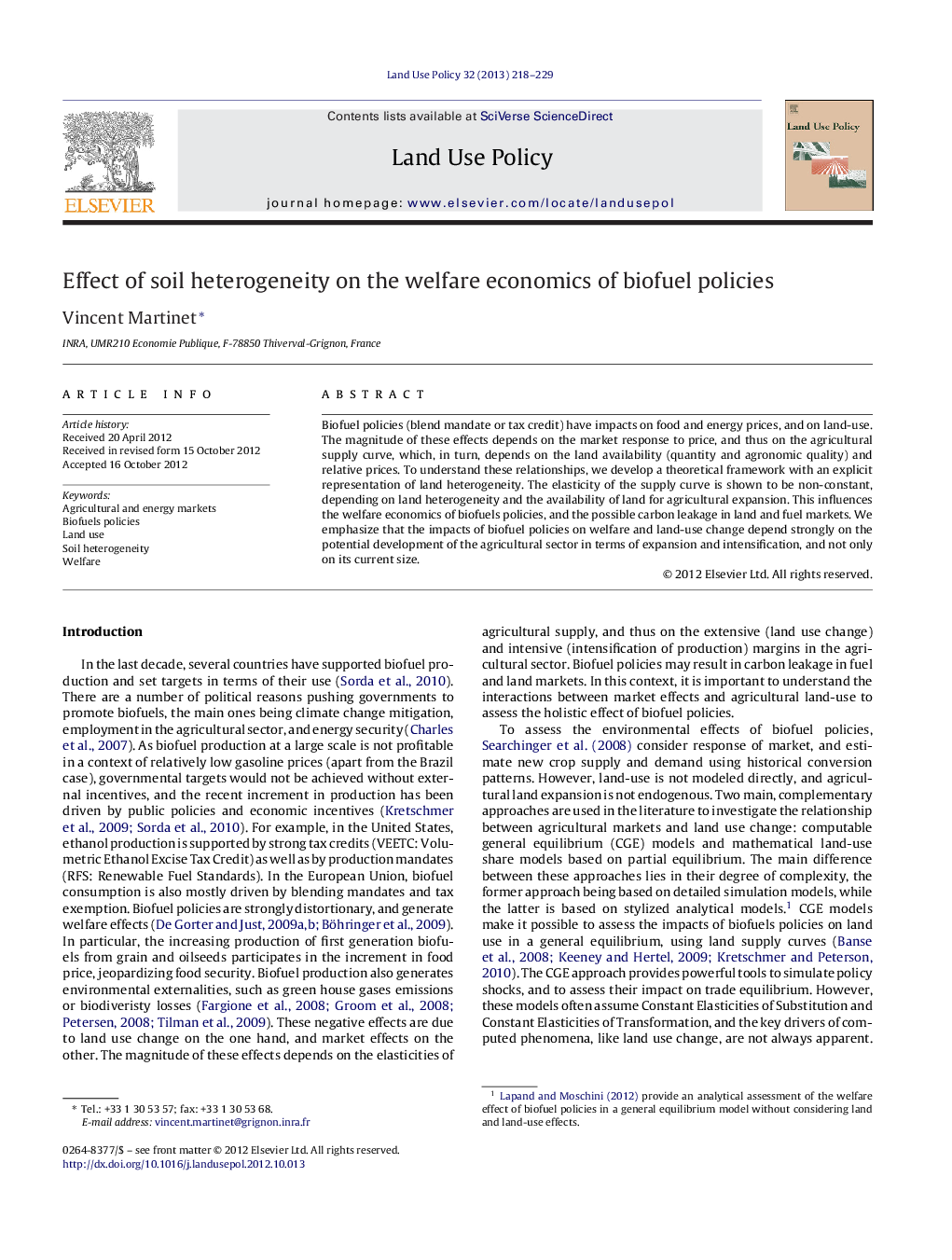| Article ID | Journal | Published Year | Pages | File Type |
|---|---|---|---|---|
| 93258 | Land Use Policy | 2013 | 12 Pages |
Abstract
Biofuel policies (blend mandate or tax credit) have impacts on food and energy prices, and on land-use. The magnitude of these effects depends on the market response to price, and thus on the agricultural supply curve, which, in turn, depends on the land availability (quantity and agronomic quality) and relative prices. To understand these relationships, we develop a theoretical framework with an explicit representation of land heterogeneity. The elasticity of the supply curve is shown to be non-constant, depending on land heterogeneity and the availability of land for agricultural expansion. This influences the welfare economics of biofuels policies, and the possible carbon leakage in land and fuel markets. We emphasize that the impacts of biofuel policies on welfare and land-use change depend strongly on the potential development of the agricultural sector in terms of expansion and intensification, and not only on its current size.► Welfare effects of biofuel policies depend on the agricultural supply elasticity. ► We characterize the agricultural supply as a function of land quality heterogeneity. ► Elastic (US-like) and inelastic (France-like) supply cases are examined. ► Welfare effects of biofuel policies are examined accounting for soil heterogeneity. ► The impacts of biofuel policies depend on the potential development of agriculture.
Keywords
Related Topics
Life Sciences
Agricultural and Biological Sciences
Forestry
Authors
Vincent Martinet,
